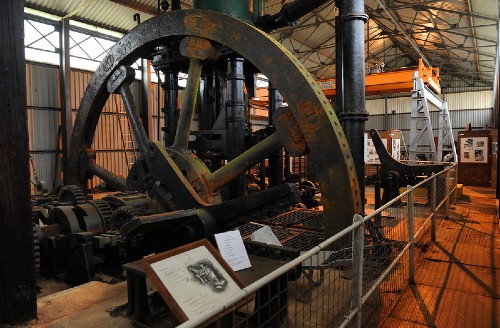Survey works will help decide future options for UK’s oldest tinplate works

SURVEY works are underway to determine future options for Kidwelly Industrial Museum, the UK’s oldest and only surviving tinplate works.
The Kidwelly Industrial Museum Trust took the difficult decision to close the museum in 2017 and the 13-acre site is now under the management of Carmarthenshire County Council’s museums service CofGâr.
Tinplate was manufactured in Kidwelly for over two centuries. Wales almost had the global monopoly on tinplate production with over 80 per cent of world production based in South Wales in the 1890s.
Kidwelly Industrial Museum is nationally important, and the remaining original structures and machinery are protected by law.
Surveys are now being carried out to assess and update on the condition of the listed buildings and Scheduled Ancient Monuments to find out what needs to be done to protect them for the future. Thousands of artefacts important to the museum are also being assessed. This will provide the basis for understanding future options, costs and potential funding bids.
The council, in collaboration with Kidwelly Town Council and local stakeholders, will engage and consult with the public to consider plans and options and the historic site.
Future plans will look to preserve the tinplate heritage whilst also looking at opportunities to improve access to the natural environment around the site and alternative uses for underused buildings.
Cabinet Member for Regeneration, Leisure Culture and Tourism Cllr Gareth John said:
“Carmarthenshire County Council is committed to preserving Carmarthenshire’s heritage and we know that developing a future for Kidwelly Industrial Museum will be a long project over many years.
“The council’s wider museum service is being transformed through investment and building local partnerships and this recipe for success will be the model for Kidwelly Industrial Museum too.
“Our long-term investment in our museums delivers far-reaching benefits for people, businesses, and education. We recognise that our heritage is extremely important and is part of our cynefin – our culture, our identity, and our sense of place.”
The survey work will continue into late summer with a report for the Cabinet to consider later in the year. This will be followed by a public engagement and consultation exercise to help develop an options appraisal for the museum.




